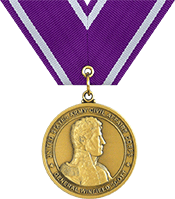Unsolicited Advice from a Former Team Sergeant
- Eunomia Journal
- Dec 14, 2020
- 3 min read

Image courtesy of imgflip
By Ian Bennett
My time as a Civil Affairs Team Sergeant began haphazardly. As the force was growing, I found myself thrust into the position as a senior Staff Sergeant nine months out of the Civil Affairs Qualification Course. I believe several of my previous successes as an infantryman led to my early promotion in Civil Affairs. Even though my Civil Affairs experience was limited to less than a year on a Civil Affairs Planning Team, the Army saw it fit to promote me; I was lucky. Because of my broad understanding of the Theatre Special Operations Command’s (TSOC) operations and environments, my ability to lead, and my promotion, the Battalion Command Sergeant Major gave me a team.
I learned quickly that each of the teams in the company held different perspectives of what success looked like. During pre-mission training with my company, I realized that all the teams - even mine in the beginning - highlighted only what made them look best to the command, reporting whatever bolstered their status when compared to other teams. In a competitive occupational specialty, the difference between a Most Qualified or Above Center Mass rating and something worse determines whether or not you have a long-term career in SOF. Team Commanders and their teams seemed more concerned about pleasing their commands and less concerned about reporting the actual operational environment. During our development as a civil affairs team, we vowed to let our commander have the truth in our reports, no matter what it looked like.
The problem is not endemic to the team level. In organizations that claim to reward critical thinkers, senior and executive leadership cling to bias, crush dissenting opinions, and encourage teams to change reports to protect themselves and the unit from scrutiny. In the shaping, influence, and information environments the consequences for lying in a report far outweigh the truth. It is our purpose to provide informative reports, grounded in truth, that assist the command in making decisions. Your next evaluation or rating should not play a role in what your team reports.
If your command is not cutting the mustard, plenty of mentors exist to help you lead and succeed. Contrary to popular belief, commanders and senior enlisted advisors are not the sole Gods of Wisdom and Guidance. Talk to other teams, ask to see their reports, and dare I say… collaborate with the others to develop unified reporting without the influence of the command until it’s necessary.
With that said, be a skeptic… of everything. Trust but verify. Just because they are “in my year group” or have deployed before, doesn’t mean they were awesome at everything. Trust me I have deployed like 400 times; I know what I’m talking about. The fact that some place first out of the five team leaders or team sergeants doesn’t make them great. That’s just one perspective! I have seen teams and companies micromanage soldiers to wits end, crippled by inefficient processes, and struggle interpersonally attempting to receive top marks. All of them returned from deployment with knives in their backs. Don’t let that Most Qualified rating be your only azimuth check. Lead the way you want to be led. Know your Soldiers, and look out for each other.
Lastly, just report the truth. Your command, your team, your force provider, and your conscience will thank you. Who cares about your next evaluation; you can’t help what is broken above you. You can affect your own circles, encourage your team to do the right thing, unify and nest your reports with the other teams and within the commander’s intent. Seek leadership away from the flag pole, be a constructive skeptic, selflessly lead your team, and report facts. These steps create an environment where the truth is undeniable.
About the Author:
Ian Bennett is a Civil Affairs non-commissioned officer serving as the Chief Instructor for the Civil Affairs Qualification Course. He previously served as a Team Sergeant in the 97th Civil Affairs Battalion. He has deployed to numerous countries in Asia, Afghanistan and Iraq.
The views expressed are the authors and do not necessarily reflect the official policy or position of the U.S. Army, the Department of Defense, or the U.S. Government.

